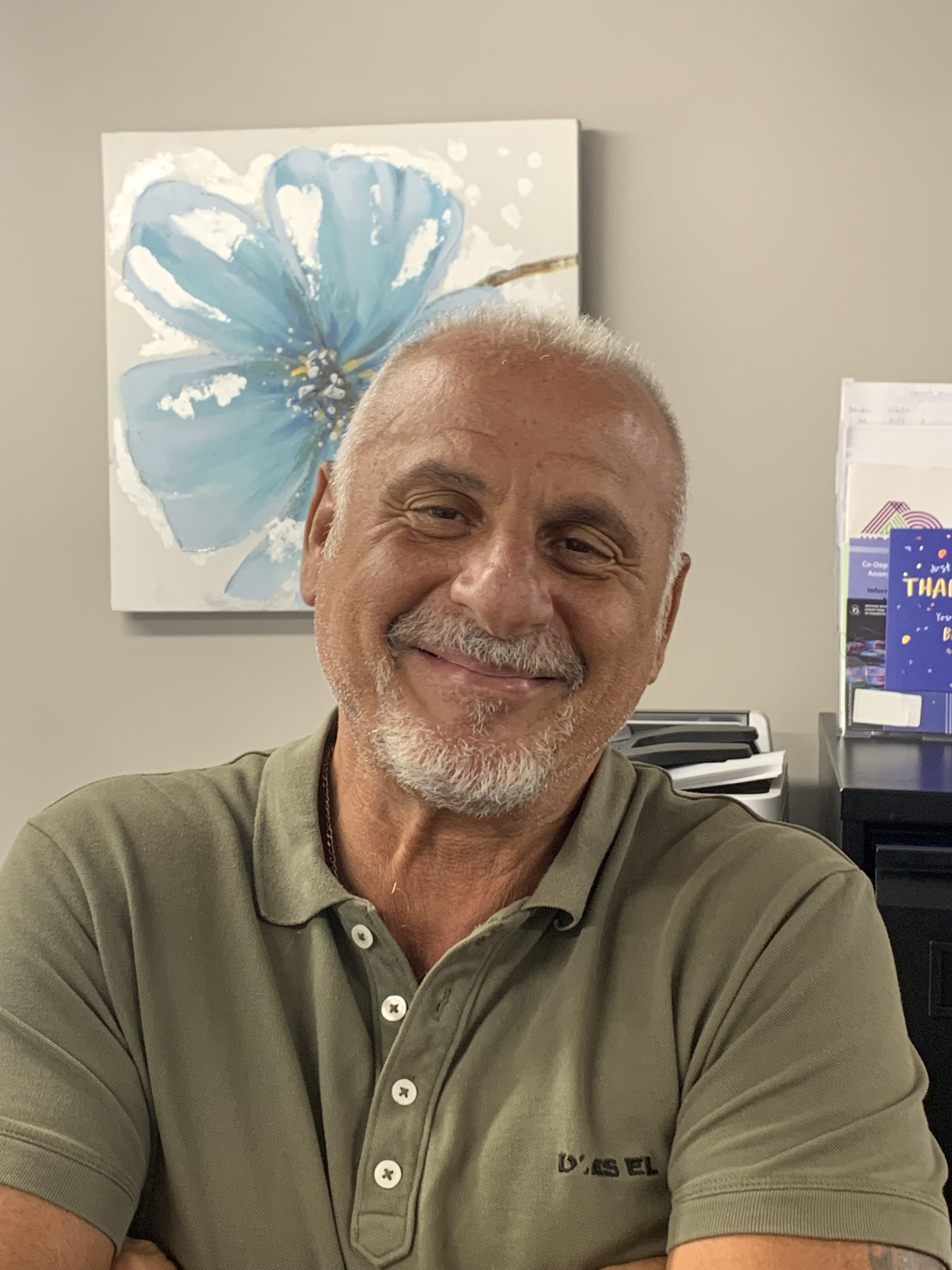Finding rehab for teens comes with a mix of urgency and hope for a bright, healthy future. Whether you’re a parent, guardian, or mentor, understanding how to choose an environment that caters specifically to a teen’s recovery needs is essential. This guide offers straightforward insights into selecting effective adolescent-specific treatments, understanding inpatient versus outpatient care, and ensuring the chosen path resonates with your teen’s circumstances. Start the journey toward healing by making informed, confident choices for your teen’s recovery.
Key Takeaways
Rehab for teens requires a tailored approach considering individual needs, and has distinct paths including inpatient/residential and outpatient programs, with centers that specialize in adolescent care generally offering the most effective support.
Substance abuse in teenagers results in a myriad of detrimental effects on physical and mental health, family relationships, and academic performance, requiring immediate professional intervention to mitigate these impacts.
Key components of effective teen rehab include cognitive behavioral therapy, holistic approaches, and family-based interventions, alongside aftercare planning and relapse prevention strategies to support long-term recovery.
Navigating Teen Rehab Options

The path to overcoming addiction often starts with a challenging question: Which rehab program is the best fit? While the plethora of treatment options can seem daunting, gaining a clear understanding of these choices marks the beginning of a successful recovery journey. From detox to medication-assisted treatments and residential care, each program offers its unique benefits tailored to combat teenage addiction.
Inpatient or residential treatment provides a safe and controlled environment, free from external influences that could potentially trigger a relapse. This structured approach, coupled with constant medical care and psychotherapy, makes it a preferred choice for severe addiction cases. Conversely, outpatient programs offer flexibility, allowing teenagers to continue their education and maintain family relationships while receiving treatment a few hours per day. The decision between inpatient and outpatient treatment should be guided by the severity of the teen’s addiction, their personal circumstances, and family preferences.
Another key aspect to consider is choosing a rehab facility that specializes in treating teenagers. These specialized centers offer treatments tailored to the unique needs of adolescents. From individual therapy to life skills courses, the programs are designed to engage teens, providing them with a sense of understanding and connection among individuals who share similar experiences. The key lies in aligning treatment with the teenager’s and family’s needs, ensuring the chosen rehab center enhances the teen’s recovery process.
Understanding Inpatient vs. Outpatient Programs
Inpatient programs, otherwise known as residential treatment, typically span from one month to half a year. These programs provide 24-hour care in a secure environment that removes ‘bad influences’ and potential relapse triggers. Although inpatient treatment is typically more expensive due to the comprehensive care provided, the benefits often outweigh the costs.
Outpatient programs, on the other hand, offer more flexibility, with treatment sessions scheduled for only a few hours per day, allowing teens to maintain their regular daily routines while receiving treatment.
Selecting a Teen-Specific Rehab Facility
Teen-focused rehab facilities, also known as teen rehab facilities, play a central role in addressing teenage addiction. These facilities offer a range of programs, from individual and group therapy to life skills courses and community outings, all tailored specifically to adolescent development. Being with peers during rehab provides comfort and connection for teenagers, fostering a sense of camaraderie and understanding among individuals who share similar experiences.
Therefore, opting for a rehab facility tailored to teenagers can considerably improve the efficacy of the treatment plan.
Factors to Consider When Choosing a Rehab
The decision to choose a rehab facility for a teenager should be made with careful thought and consideration. Several factors must be considered, such as:
The location of the facility
The qualifications and experience of the staff
The treatment philosophy
The level of family involvement in the treatment process
These factors collectively contribute to the success of the treatment, impacting the teen’s recovery process significantly.
The Impact of Substance Abuse on Adolescents

The sinister shadow of substance abuse looms large over our society, with teenagers being particularly vulnerable. The ramifications of substance misuse during these formative teenage years can cast a long, dark shadow, impacting every aspect of a teen’s life, from physical and mental health to family dynamics and academic performance.
Physical health problems vary, from injuries and diseases to the potentially lethal consequences of overdoses. The mental health implications of drugs are equally concerning, with rapid escalation from experimentation to serious disorders, particularly when underlying mental health conditions are present. It’s crucial to seek professional help for teenagers who experience complications such as reduced engagement in therapy due to substance use, or self-harm linked to addiction.
Substance abuse often precipitates family crises, leading to significant financial and emotional strain. The resulting effects can include:
Erosion of trust and communication
Overall family dysfunction
Impact on siblings
Trauma or codependent behaviors
These effects can have a lasting impact on family members and the family unit.
Furthermore, the academic and social implications of substance abuse for young people are profound, with evidence suggesting a strong correlation between substance misuse and poor academic performance, delinquent behavior, and involvement with negative peer groups.
Physical and Mental Health Risks
The physical and mental health risks linked with adolescent drug misuse are seriously concerning. Teenagers and adults who misuse substances face increased risks of:
physical injuries
disabilities
diseases
the potentially lethal consequences of overdoses
Substance use in teenagers can escalate rapidly from experimentation to substance addiction, particularly when underlying mental health disorders, such as eating disorders, are present.
Professional help is indispensable for teenagers who face complications like decreased participation in therapy due to substance use, psychotic episodes, or self-harm connected to addiction.
Family Dynamics and Addiction
Families often bear the brunt of a teenager’s substance and alcohol abuse too. The dynamics within the family can quickly deteriorate, leading to:
crises
severe financial strain
eroded trust
complicated communication
The repercussions of addiction extend to siblings, who may suffer from trauma or engage in codependent behaviors.
The impact of substance misuse on family dynamics underscores the importance of incorporating family therapy sessions in the addiction treatment plan, which is why it’s crucial that family therapy sessions commence as soon as possible.
Recognizing the Signs of Teenage Addiction

Understanding the signs of teenage addiction is a critical first step toward seeking help. The signs may be subtle or glaringly obvious, but knowing what to look for can make all the difference. Early signs of serious drug and alcohol use, such as underage drinking or marijuana use, are often dismissed as mere experimentation. However, ignoring these signs can lead to a full-blown substance use disorder.
Behavioral changes in teens, such as becoming secretive or withdrawing from family, can be indicators of drug or alcohol use. Emotional signs, like aggression or despondency, may also indicate a problem. Physical symptoms are also common, including changes in appearance, hygiene, and sleep patterns.
While recognizing these early warning signs is vital, determining when to seek professional help is of equal importance. Professional help should be sought when a teen encounters legal problems related to substance use, such as arrests for driving under the influence or disorderly conduct. At times like these, the expertise of medical professionals such as Dr. Olalekan Otulana, an experienced addiction physician, can prove invaluable.
Behavioral and Emotional Indicators
Recognizing behavioral and emotional indicators of teenage addiction is vital. Some signs to look out for include:
Mood and personality shifts
Strained relationships
Sudden financial hardships
Altered interactions with family and friends
Absenteeism from school
Loss of interest in activities
Avoiding eye contact
Locking bedroom doors
Making secretive calls
Isolating from family
If you notice any of these behaviors in a young person or teenager, it may be a sign of drug addiction or involvement with illegal drug use.
Increased aggression or irritability can also be a behavioral indicator of drug addiction, which may be a result of drug abuse, in teenagers young adults.
Physical Symptoms to Watch For
Physical symptoms of teenage drug or alcohol addiction can manifest in various ways. Observable signs include a messy appearance, poor hygiene, frequently red or flushed cheeks, glazed or bloodshot eyes, and a frequent runny nose or nosebleeds. Other symptoms may include slurred or rapid-fire speech, nosebleeds, sores around the mouth, sudden weight changes, skin abrasions, frequent perspiration, vomiting, and coordination issues indicating intoxication.
When to Seek Professional Help
Seeking professional help for teen addiction is crucial, and the earlier consultation and assessment are sought, the better the outcomes can be. Experts like Dr. Olalekan Otulana, with over 10 years of experience as an Addiction Physician and a specialist interest in Substance Misuse Management, can be pivotal in managing the addiction, treating young people and guiding the teen towards recovery.
Treatment Methods and Therapies Used in Teen Rehab

A range of treatment methods and therapies prove crucial in combating a teen drug addiction. These include:
Family-based interventions
Cognitive Behavioral Therapy
Individual psychotherapy sessions
Holistic approaches like meditation and yoga
Each of these therapies plays a unique role in addressing destructive behavior patterns and fostering personal growth in teenagers.
Cognitive Behavioral Therapy (CBT) is a form of talking therapy that helps teenagers understand how their thoughts and feelings affect their behavior. Through CBT, adolescents work towards reshaping destructive thought patterns to effect positive behavioral change.
Holistic therapies like art and music therapy are increasingly being used alongside traditional treatments. These therapies, along with recreational therapy, aim to focus on the entire wellbeing of the teen, not just their mental health. Through engaging in leisure activities such as sports and arts, recreational therapy helps teens in recovery regain positive aspects of their selfhood.
Cognitive Behavioral Therapy (CBT) and Its Effectiveness
Cognitive Behavioral Therapy (CBT) has been proven effective in helping teens understand how their thoughts and feelings affect their behavior. By engaging adolescents in identifying and challenging the thinking processes that contribute to their addiction, CBT guides them in reshaping destructive thought patterns and adopting healthier coping mechanisms. This therapeutic process not only facilitates positive behavioral change but also empowers teens to take control of their recovery journey, fostering resilience and self-efficacy that are essential for long-term sobriety.
Holistic Therapies and Their Role
Holistic therapies play a crucial role in the recovery process for adolescents. Therapies like art and music therapy offer a creative outlet for teenagers and help them express their feelings in a safe and therapeutic environment.
Alongside traditional treatments, these therapies can significantly improve the recovery process for adolescents.
Medication-Assisted Treatment and Detox
Medication-assisted treatment and detox play a vital role in teen rehab. Supervised use of medications, depending on individual needs, helps manage withdrawal symptoms and aids in the detox process.
Outpatient detox, for example, provides medication administration under careful monitoring during scheduled visits to a medical facility. This approach helps manage withdrawal symptoms in teenagers with mild to moderate addiction.
Preparing for Life After Rehab

While the prospect of life after rehab can be intimidating, appropriate support and guidance can facilitate a smooth reintegration into society. Aftercare programs are crucial in this process, as they provide additional support during and after treatment to maintain sobriety and achieve life goals.
A relapse prevention plan that includes forming connections with parents and other recovering teens and being prepared for the need for external support in case of relapse is essential, particularly given the high risk of relapse within the first six months post-treatment. Families play a critical role in the recovery process. By maintaining hope and support through continuous communication with the teen’s treatment providers and actively participating in the recovery process, they can foster an environment where mutual boundaries are established and emotions can be freely expressed.
Aftercare planning is vital in addiction recovery since it offers continued support during and post-treatment to sustain sobriety and accomplish life objectives. An aftercare program offers activities and resources to help teens handle triggers, stress, and cravings post-treatment. Joining a local Teen Addiction Anonymous group for continued support and maintaining recovery is highly recommended.
Importance of Aftercare Planning
Planning for aftercare plays a crucial part in the process of recovery. It is a crucial step in maintaining sobriety and achieving life goals. An aftercare program includes activities and resources to help teens handle triggers, stress, and cravings post-treatment.
These programs are often offered by rehabilitation centres as part of their treatment plan, providing comprehensive support for teens as they transition from the rehabilitation centre back into their everyday lives.
Strategies for Relapse Prevention
The prevention of relapse constitutes a significant component of recovery. The high risk of relapse within the first six months post-treatment underscores the importance of a robust relapse prevention plan. Such a plan includes forming connections with other recovering teens and being prepared for the need for external support in case of relapse.
By recognizing potential triggers and learning coping mechanisms, teens can navigate through the challenges of recovery and maintain their sobriety.
Summary
In conclusion, tackling teenage addiction is a complex process that requires a multi-faceted approach. From recognizing the signs of addiction to choosing the right rehab facility, and from navigating through various treatment options to preparing for life after rehab, each step plays a crucial role in the recovery journey. . Family member involvement, professional guidance, and continuous support are vital elements in this process. As we navigate these challenging waters, let us remember that the journey to recovery, though long and arduous, is a journey towards hope, healing, and a brighter future.
Frequently Asked Questions
What is the rehabilitation process?
The rehabilitation process involves assessment, treatment, and management to help individuals achieve their maximum potential for physical, cognitive, social, and psychological function, participation in society, and quality of living. It aims to support both the individual and their family and carers in this journey.
What are 4 causes of substance abuse during adolescence?
Substance-related disorders in adolescence can be caused by genetic vulnerability, environmental stressors, social pressures, peer pressure, individual personality characteristics, and psychiatric problems. These factors can lead to substance abuse during this critical period of development.
What are some signs of teenage addiction?
If you notice your teen becoming secretive, withdrawing from family, showing aggression or despondency, or experiencing changes in appearance, hygiene, and sleep patterns, these could be signs of teenage addiction. It’s important to address these signs promptly and seek professional help if needed.
How can family therapy help in teen recovery?
Family therapy can be beneficial for teen recovery as it resolves family issues, reduces stress and anxiety, and promotes stronger relationships, which are essential for supporting a teen’s journey away from substance use.
Authors
-
Dr Otulana is PCP’s longest-serving doctor. He is an experienced Physician with Specialist Interest in Substance Misuse Management and he has a wide range of experience in the assessment and management (including detoxification) of clients with various drug and substance addiction problems. Dr Otulana started practising as a doctor in 2000 and with over 10 years as an Addiction Physician. He is an Advanced Addiction Practitioner Member of Addiction Professionals and also holds the Certificate in Clinical Psychopharmacology (Part 1) of the British Association for Psychopharmacology. He is additionally a strong healthcare services professional with a Master of Business Administration (M.B.A.) degree from Cambridge University Judge Business School.
View all posts -
Andy's journey in psychology and substance recovery is marked by significant educational and professional achievements. He studied Person Centered Counseling, gained insights from psychological literature, and completed an online course on the mind. His hands-on experience includes volunteering at a Drug and Alcohol Clinic and earning a diploma in child adverse experiences. Andy holds a first-class honors degree in Psychology with Substance Use and Misuse. Professionally, he has contributed as a Lived Experience Coordinator and counselor, offering hope and empowerment to those in recovery. Qualifications and Experience: Introductory Course in Person Centered Counseling Extensive study of psychological literature (including Carl Rogers and Freud) Online course completion on the Mind from UCT OCN peer mentoring course Level 3 diploma in child adverse experiences First-class honors degree in Psychology with Substance Use and Misuse Experienced Lived Experience Coordinator for Probation Dependency and Recovery service
View all posts









